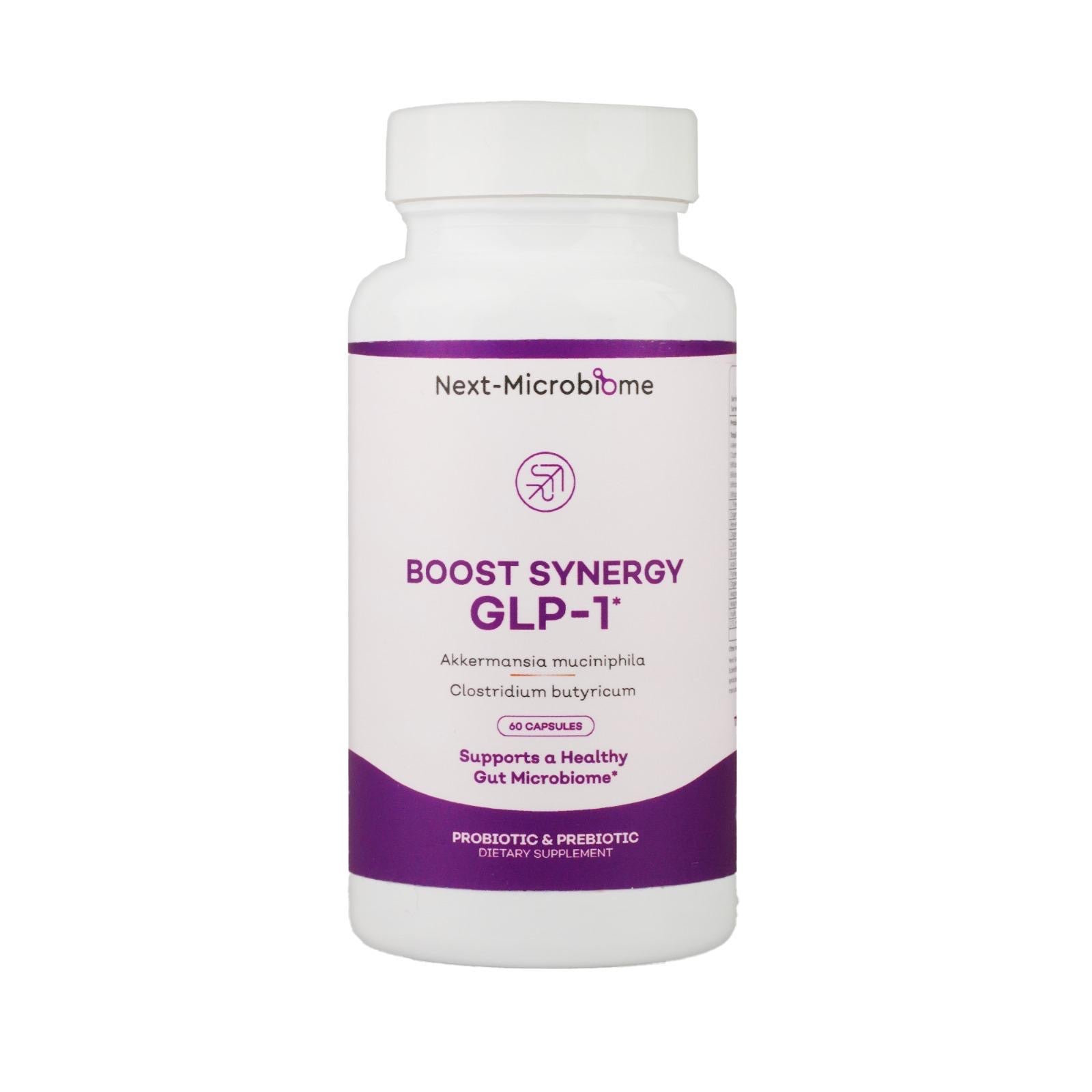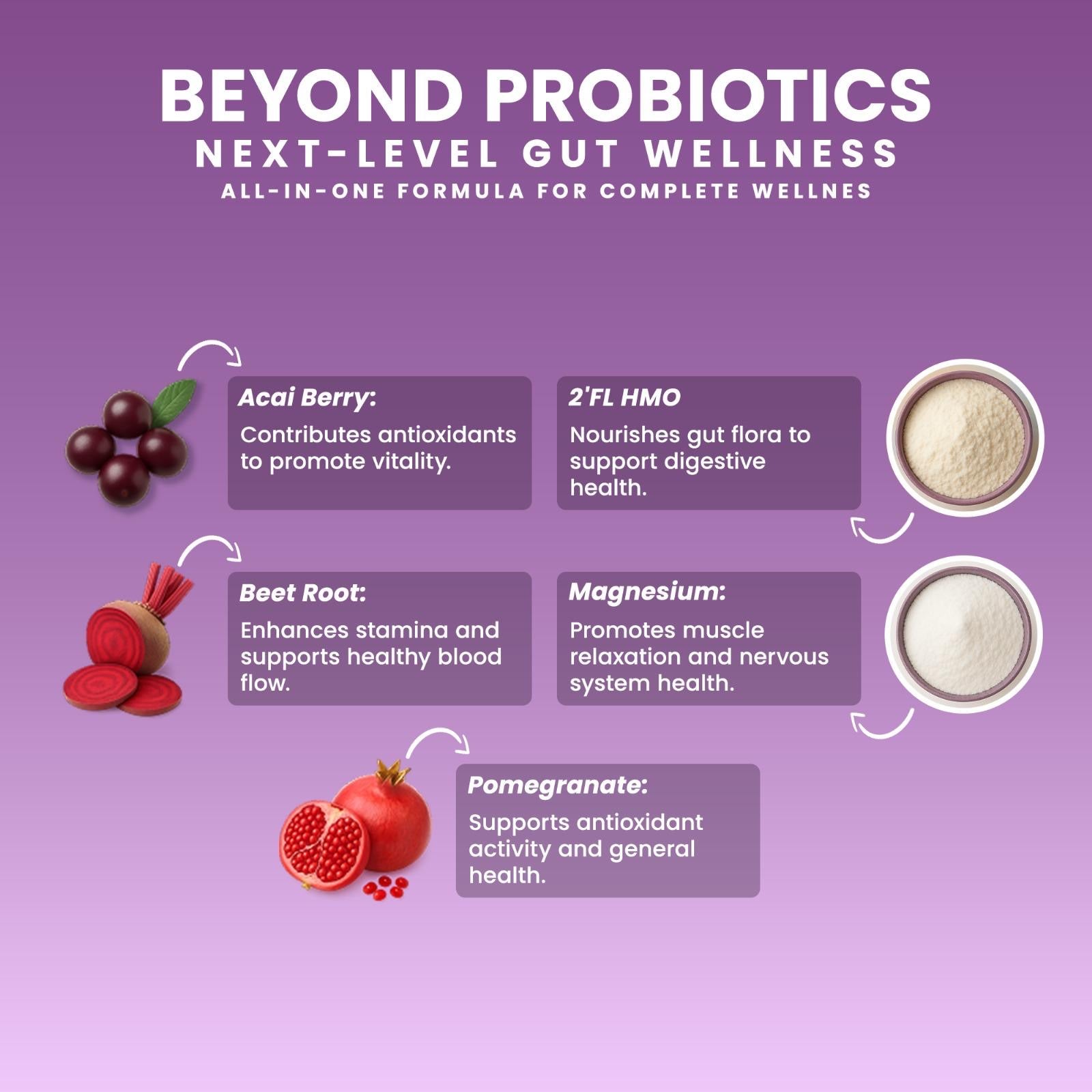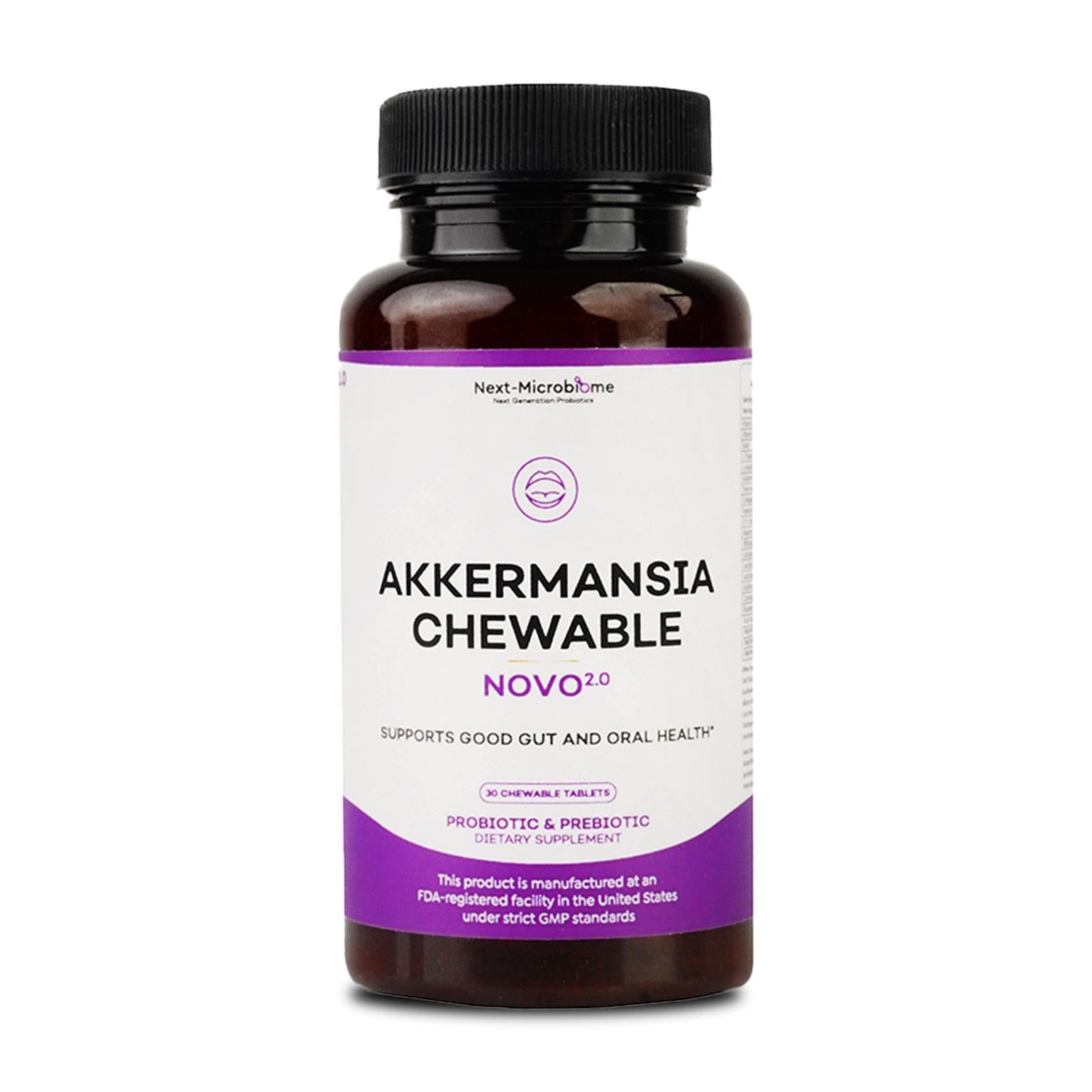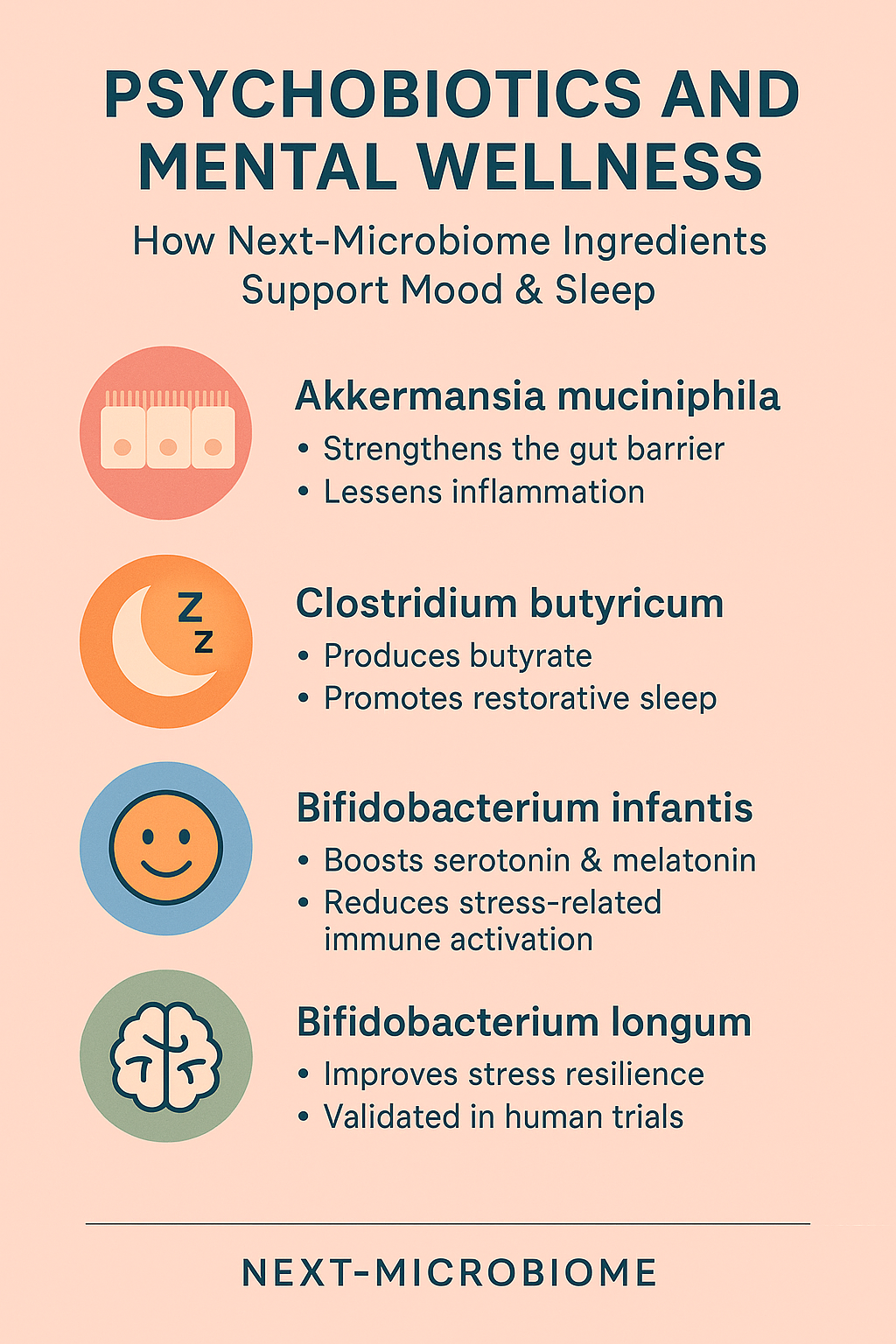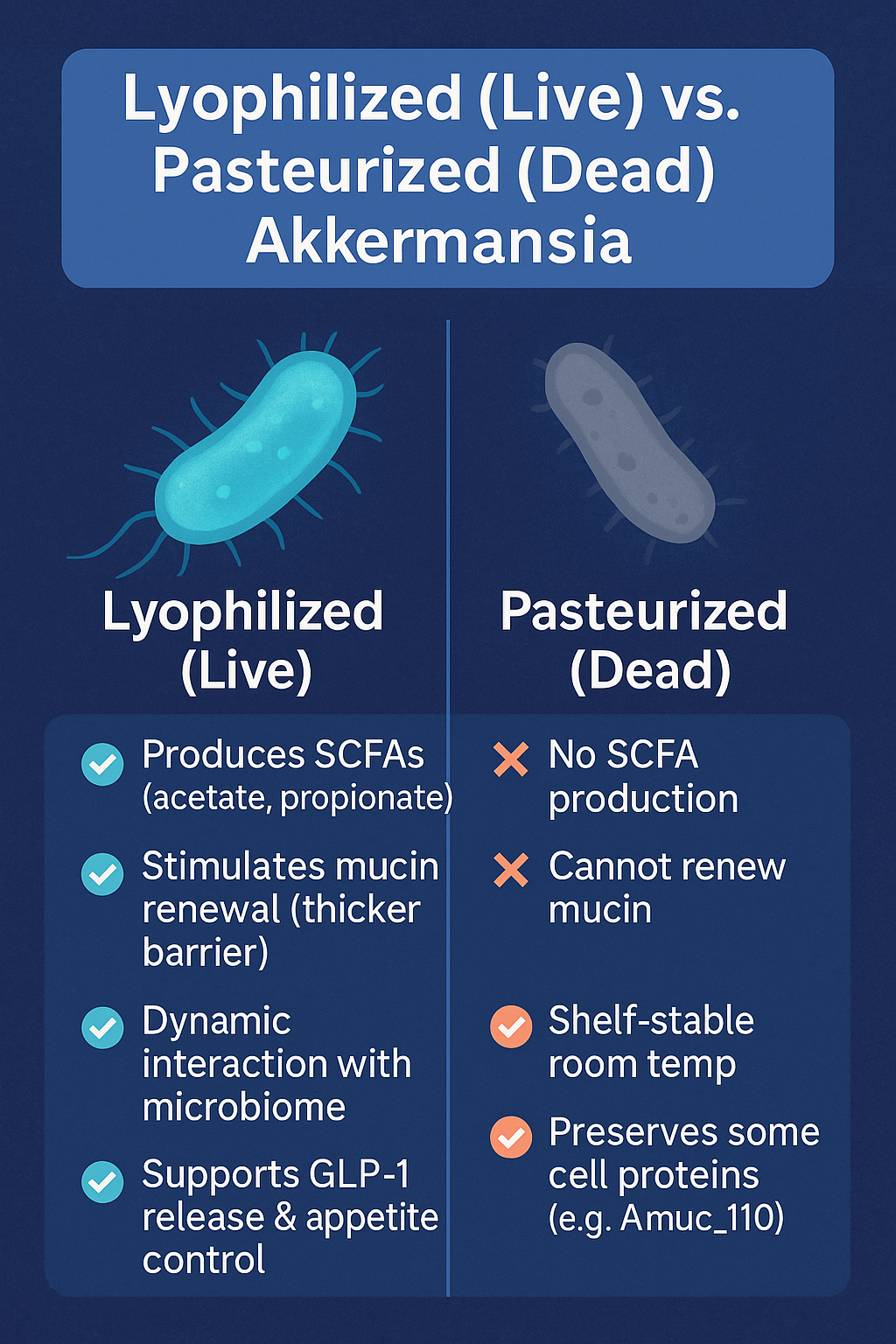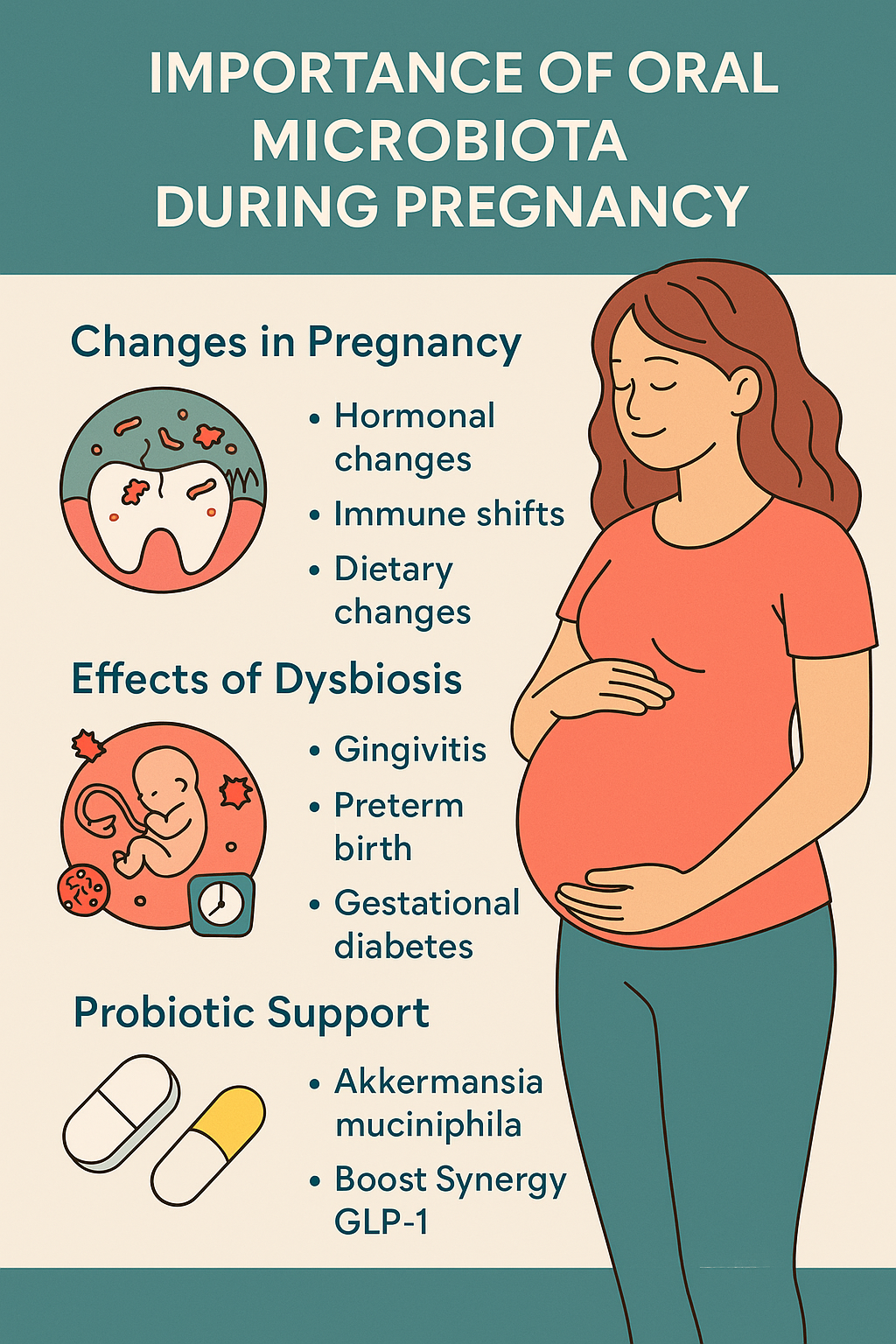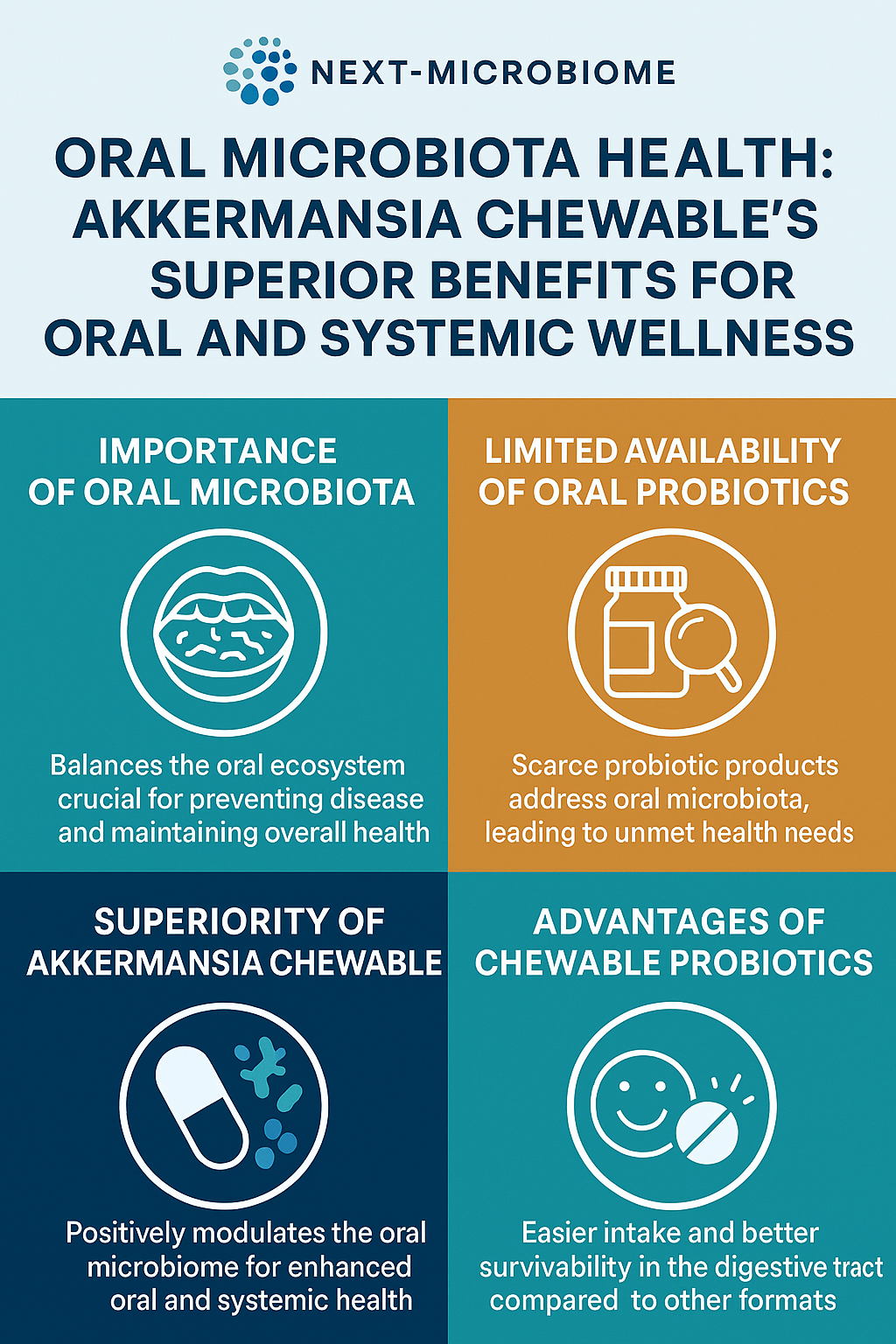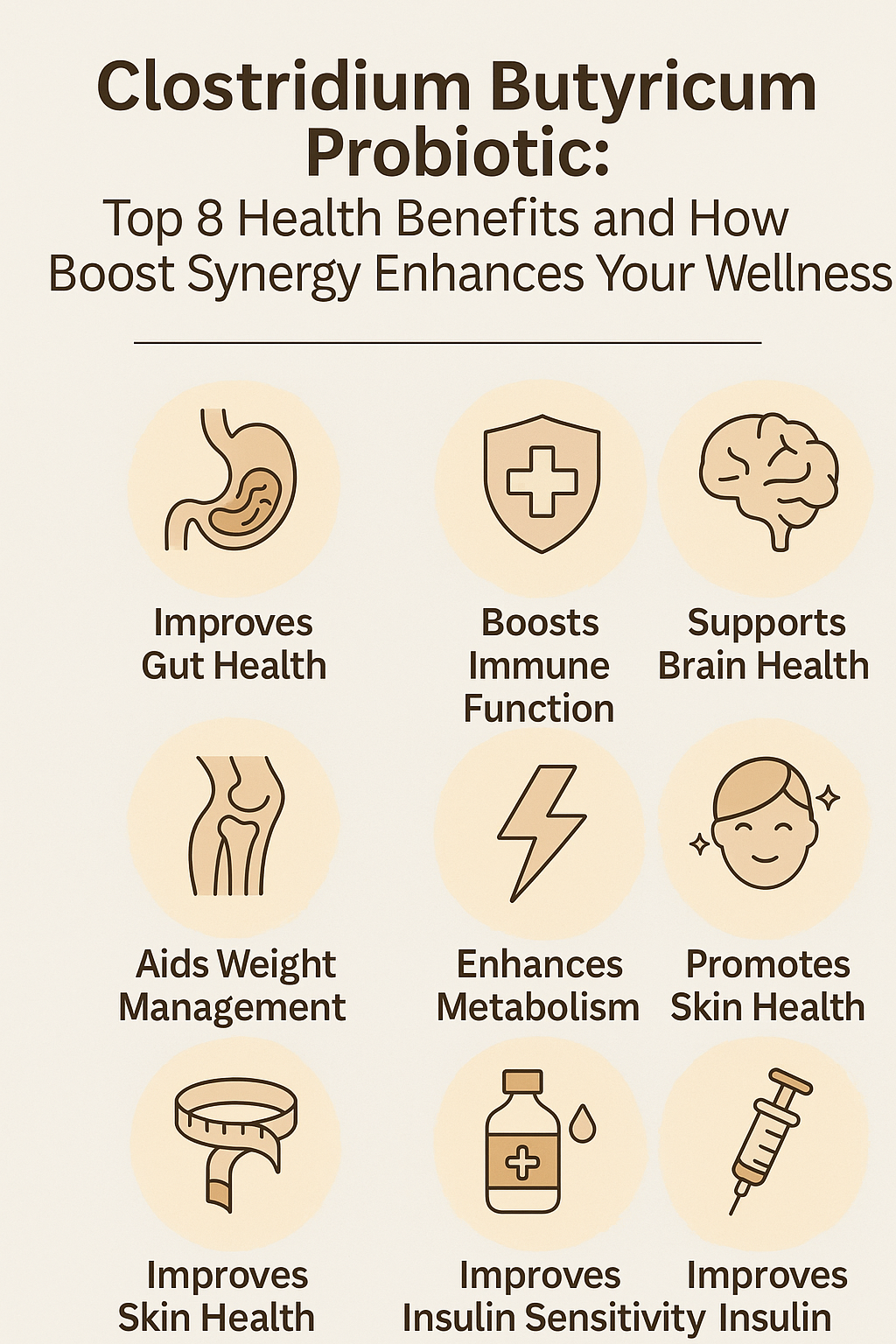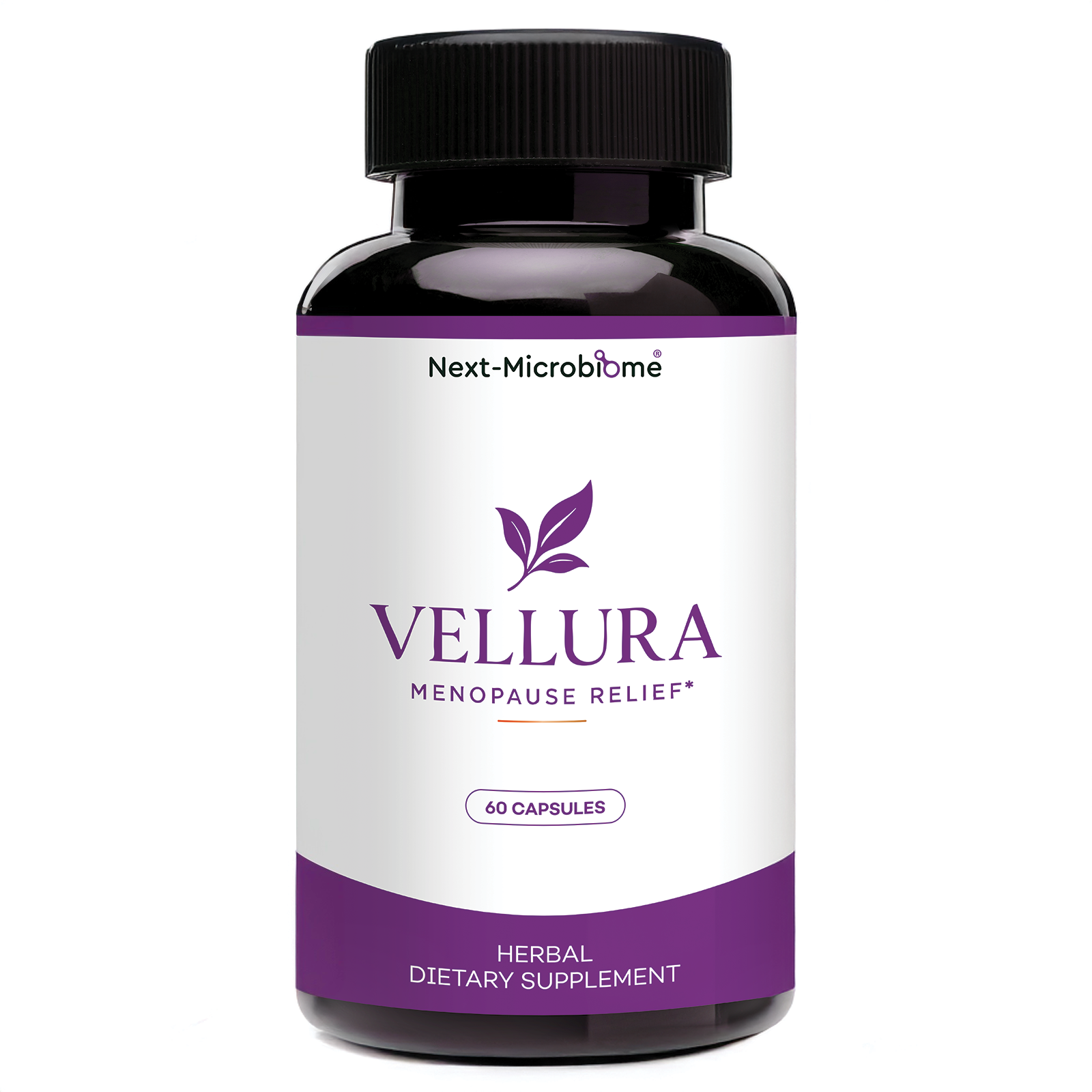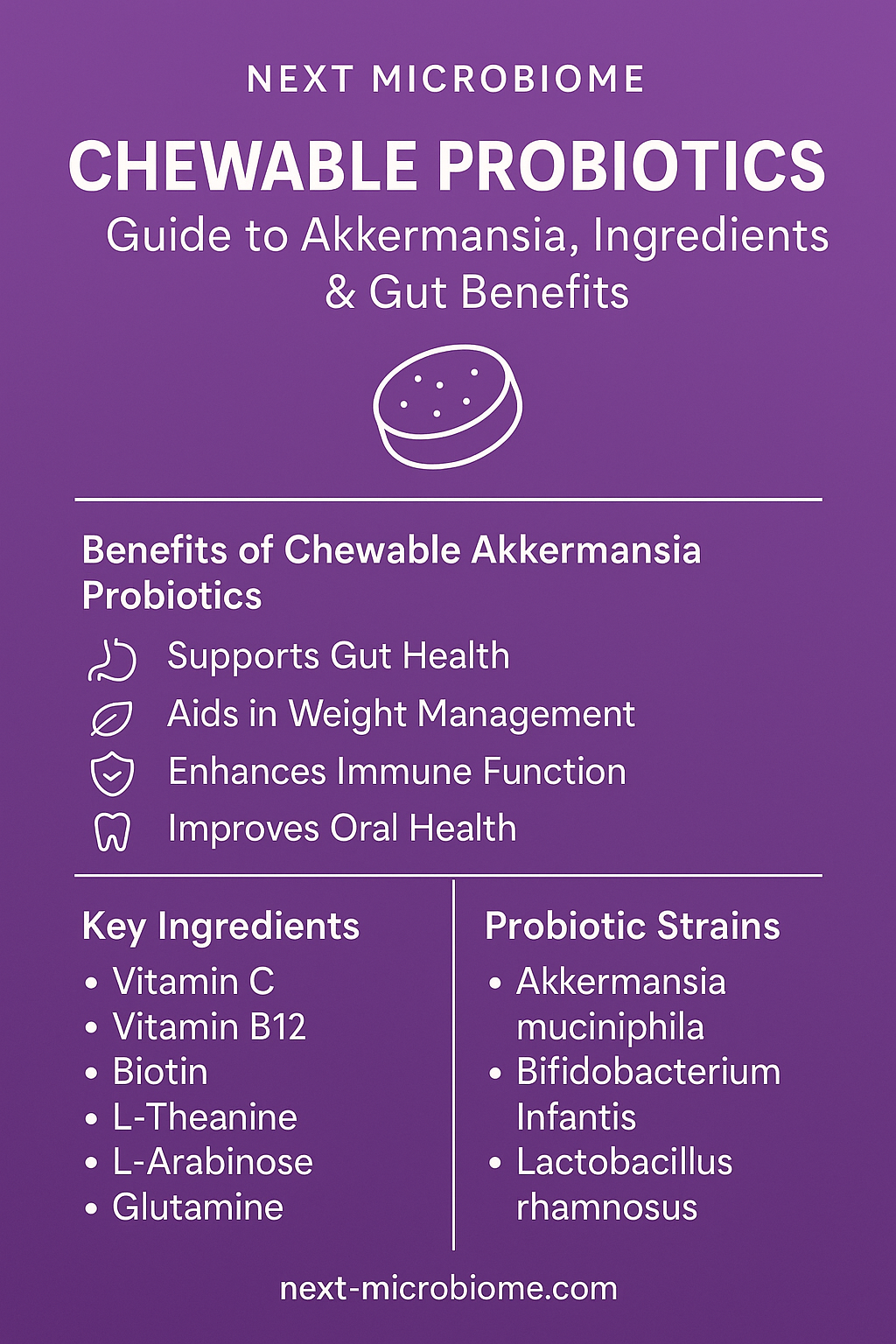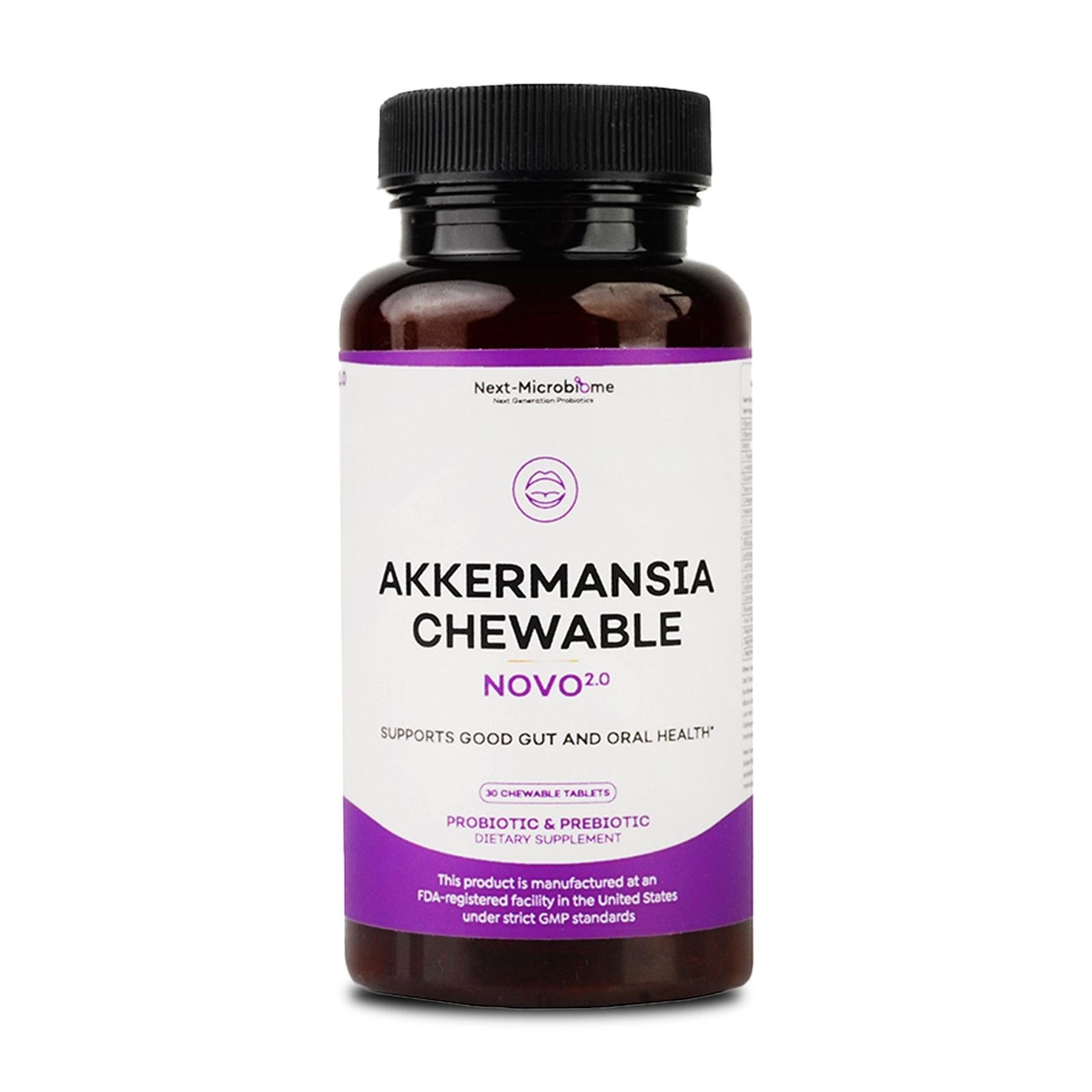The Therapeutic Potential of Akkermansia muciniphila in Inflammatory Bowel Disease (IBD) and Irritable Bowel Syndrome (IBS)
Unraveling the Complexity of Chronic Gut Disorders
Inflammatory Bowel Disease (IBD), encompassing Crohn’s Disease and Ulcerative Colitis, is a chronic, relapsing inflammatory condition of the gastrointestinal tract with increasing global prevalence, particularly in industrialized countries. Its multifactorial pathophysiology involves genetic susceptibility, environmental triggers, immune dysregulation, and alterations in gut microbiota. Treatments such as immunomodulators and biologics often provide only partial relief and may carry side effects.
In contrast, Irritable Bowel Syndrome (IBS) is a non-inflammatory but functionally impairing disorder marked by recurrent abdominal pain, bloating, and altered bowel habits. Affecting up to 15% of the global population, IBS is driven by mechanisms such as visceral hypersensitivity, gut-brain axis dysfunction, low-grade inflammation, and dysbiosis. While pharmacological and dietary interventions offer some symptom control, they often fail to address underlying imbalances in gut health. What is gut health and how to improve gut health are common questions, as patients seek solutions to restore balance in conditions like IBS and IBD.
A shared feature of both IBD and IBS is gut dysbiosis—a disruption in the microbial ecosystem characterized by reduced microbial diversity and an increased abundance of pro-inflammatory species. One bacterium that stands out in the context of a healthy gut is Akkermansia muciniphila, a Gram-negative, anaerobic organism residing in the mucin layer. Known for degrading mucin and simultaneously enhancing the mucus barrier, Akkermansia muciniphila has shown beneficial effects on metabolism, inflammation, and gut homeostasis, making it a key player in Akkermansia gut health. For those asking, “Akkermansia what is it,” it is a next generation probiotic that supports the gut barrier and reduces inflammation.
Emerging studies have revealed that low Akkermansia muciniphila levels are common in IBD, especially during active disease phases, and may vary in IBS depending on subtype. Its role in reinforcing the gut barrier, modulating immune responses, supporting the production of short-chain fatty acids (SCFAs), and maintaining microbial balance positions it as a microbiome booster with therapeutic potential. Understanding how to heal your gut often involves exploring Akkermansia muciniphila’s contributions to microbial health.
To address the growing interest in Akkermansia muciniphila, many are curious about how to increase Akkermansia in gut and how to promote Akkermansia. Dietary strategies, such as consuming prebiotics like inulin, arabinoxylans, and polyphenols, can naturally boost Akkermansia levels, supporting its role in combating dysbiosis. For example, foods to increase Akkermansia include polyphenol-rich berries, legumes, and fermented foods, while compounds like berberine Akkermansia have shown promise in promoting its growth. Additionally, questions like is coffee a prebiotic arise, as coffee’s polyphenol content may enhance Akkermansia activity, contributing to coffee and gut health, coffee gut microbiome, and coffee gut bacteria. These dietary approaches offer accessible ways to support Akkermansia’s therapeutic effects in IBD and IBS.
The Role of Akkermansia muciniphila in IBD and IBS
In IBD, particularly during active disease, the abundance of Akkermansia muciniphila tends to decrease, leading to low Akkermansia muciniphila levels, suggesting its role as a biomarker and potential mediator of inflammation. This depletion correlates with impaired mucosal barriers, a hallmark feature of both Crohn’s disease and ulcerative colitis. By enhancing MUC2 mucin production and tight junction proteins, such as occludin and claudins, through pathways involving proteins like Amuc_1100, which engages Toll-like receptor 2, Akkermansia muciniphila can help restore epithelial integrity and reduce systemic inflammation. This makes Akkermansia gut health a critical focus for those seeking to manage IBD symptoms.
Its immunomodulatory effects are equally notable. The bacterium promotes the production of anti-inflammatory cytokines, such as IL-10, and regulatory T cells, while reducing pro-inflammatory mediators, including TNF-α and IL-6. These effects are partly mediated by secreted vesicles and outer membrane proteins, which interact with immune cells like macrophages and dendritic cells in the gut lamina propria, supporting microbiome probiotics.
Although Akkermansia muciniphila primarily produces acetate, it supports the activity of butyrate-producing microbes through metabolic cross-feeding, as seen with Akkermansia and butyricum. Short-chain fatty acids (SCFAs), such as butyrate, are essential for colonocyte health and help maintain anti-inflammatory environments, especially during the recovery and remission phases of IBD. This cross-feeding mechanism underscores Akkermansia muciniphila’s role as a microbiome booster.
In IBS, the evidence for Akkermansia muciniphila is more variable. While reduced levels are often seen in IBS-D (diarrhea-predominant) and elevated levels in IBS-C (constipation-predominant), this inconsistency may be due to methodological differences and patient heterogeneity. Nevertheless, its capacity to reduce gut permeability, decrease endotoxemia, and potentially influence the gut-brain axis through SCFA production and modulation of neurotransmitters, such as serotonin and GABA, highlights its therapeutic relevance.
For those wondering what are probiotics good for, what do probiotics do, and what does a probiotic do, Akkermansia muciniphila can help normalize motility and alleviate symptoms like bloating, as seen in queries like can probiotics cause gas and do probiotics help with gas. Its potential to address Akkermansia depression and Akkermansia autism further ties to the gut-brain axis, offering hope for IBS patients with mood-related symptoms.Moreover, low-grade mucosal inflammation, often observed in subsets of IBS patients, could be alleviated through the anti-inflammatory effects of Akkermansia muciniphila. Preliminary research also suggests a role in normalizing motility by modulating the microbial environment and metabolite profile, potentially balancing bowel function across IBS phenotypes, addressing concerns like do probiotics cause diarrhea.
Current and Emerging Therapeutic Approaches
Several strategies exist to harness the benefits of Akkermansia muciniphila. Direct supplementation, especially when taken orally as an Akkermansia supplement, Akkermansia muciniphila supplement, or Akkermansia probiotic, has shown success in preclinical models of colitis and IBS, improving inflammation and epithelial health. Pasteurized Akkermansia muciniphila, available in products like Akkermansia Chewable, Akkermansia capsules, or probiotics chewable tablets, maintains efficacy while offering better shelf stability. Consumers often ask where can I buy Akkermansia muciniphila supplement, can you buy Akkermansia muciniphila supplement, and Akkermansia where to buy, reflecting the popularity of brands like Akkermansia Codeage and Ultrabiotic Akkermansia Plus. Questions like how to take Akkermansia, when to take Akkermansia, and Akkermansia dosage highlight the need for guidance on using these Akkermansia muciniphila probiotic products effectively.
Dietary strategies that act as prebiotics—such as inulin, arabinoxylans, and polyphenols—can selectively promote the growth of Akkermansia muciniphila, enhancing its natural abundance and activity. These approaches can be personalized depending on baseline microbiota profiles, answering how to promote Akkermansia and how to increase Akkermansia in gut. Berberine Akkermansia and coffee and gut health are relevant here, as berberine and coffee’s polyphenols (addressing is coffee a prebiotic) support Akkermansia growth. Foods to increase Akkermansia and Akkermansia natural sources include polyphenol-rich foods, aligning with what are prebiotics.
For those seeking the best Akkermansia supplement, options like Akkermansia muciniphila supplement for sale, live Akkermansia, and probiotic with Akkermansia are gaining traction. These next generation probiotics and microbiome supplements offer targeted support for IBD and IBS. Probiotic synergy and synergy probiotics involve combining Akkermansia muciniphila with prebiotics or other microbes, enhancing efficacy. Consumers also ask what is a probiotic, what is probiotics, and what does cfu mean in probiotics, as Akkermansia muciniphila supplements often list colony-forming units (CFU) or active fluorescent units (AFU), such as cfu meaning probiotics, cfu probiotic meaning, and what is cfu in probiotics. These metrics ensure the potency of microbiome pills and microbiome products, making them effective for gut health restoration.
Fecal microbiota transplantation (FMT), though less targeted, has also shown that successful interventions correlate with increased Akkermansia muciniphila levels, reinforcing its importance as a beneficial marker and possible effector of therapeutic response, particularly for microbiome activating strategies.
In the future, precision medicine approaches could leverage microbial sequencing and biomarkers to identify patients most likely to benefit from interventions based on Akkermansia muciniphila. Advances in delivery systems—such as Akkermansia capsules or chewable probiotics for adults—may enhance efficacy, while synthetic biology could lead to engineered strains with enhanced SCFA production or immune-regulating properties, supporting next-microbiome innovations.
Synbiotic approaches combining Akkermansia muciniphila with other beneficial microbes or prebiotics could provide broader benefits, as seen in probiotic with Akkermansia and Akkermansia and butyricum. Combination therapies, including the concurrent use of medications such as 5-ASA or biologics, may enhance remission rates and reduce the burden of medication.
Finally, integrating these strategies with digital health tools—such as remote monitoring, microbiome-guided feedback, and personalized dietary apps—could revolutionize the management of IBD and IBS, with Akkermansia muciniphila as a central component of microbiome probiotics.
Conclusion
Akkermansia muciniphila represents a promising frontier in the microbiota-targeted management of Inflammatory Bowel Disease (IBD) and Irritable Bowel Syndrome (IBS). With its roles in enhancing mucosal integrity, modulating inflammation, and rebalancing the gut ecosystem, it is uniquely suited to address key pathophysiological aspects of these chronic disorders. Clinical and preclinical research support its efficacy, while commercial innovations, such as Akkermansia Chewable, Akkermansia probiotic, and chewable probiotics for adults, make its benefits accessible to broader populations. Future research, guided by personalized medicine and robust clinical trials, will further unlock its potential and cement its role in the next generation of gut health solutions, answering are probiotics good for you and supporting Akkermansia gut health.
References
-
Ananthakrishnan, A. N. (2015). Epidemiology and risk factors for IBD. Gastroenterology, 149(6), 1112-1129.e2. https://doi.org/10.1053/j.gastro.2015.08.001
-
Mearin, F., et al. (2016). Bowel disorders. Gastroenterology, 150(6), 1393–1407. https://doi.org/10.1053/j.gastro.2016.02.031
-
Zhuang, X., et al. (2020). Gut microbiota in IBD and IBS. Nature Reviews Gastroenterology & Hepatology, 17(10), 585–596. https://doi.org/10.1038/s41575-020-00390-5
-
Derrien, M., et al. (2015). Akkermansia muciniphila and Its Role in Gut Health Nature, 518(7540), 555–559. https://doi.org/10.1038/nature14460
-
Cani, P. D., et al. (2022). Amuc_1100 and host interaction. Science Translational Medicine, 14(630), eabb6284. https://doi.org/10.1126/scitranslmed.abb6284
-
Everard, A., et al. (2020). Immunomodulatory effects of Akkermansia. Nature Communications, 11, 1235. https://doi.org/10.1038/s41467-020-18280-5
-
Lavelle, A., & Sokol, H. (2020). Microbiota–host interactions in IBD. Inflammatory Bowel Diseases, 26(7), 1043–1051. https://doi.org/10.1093/ibd/izaa294
-
Wang, L., et al. (2021). Prebiotic-driven Akkermansia proliferation. Journal of Nutritional Biochemistry, 93, 108781. https://doi.org/10.1016/j.jnutbio.2021.108781
-
Paramsothy, S., et al. (2020). FMT efficacy and microbial changes. The Lancet Gastroenterology & Hepatology, 5(6), 516–526. https://doi.org/10.1016/S2468-1253(20)30057-8
-
Cryan, J. F., et al. (2015). Gut microbiota and the brain. Neuron, 88(6), 1150–1162. https://doi.org/10.1016/j.neuron.2015.02.008

